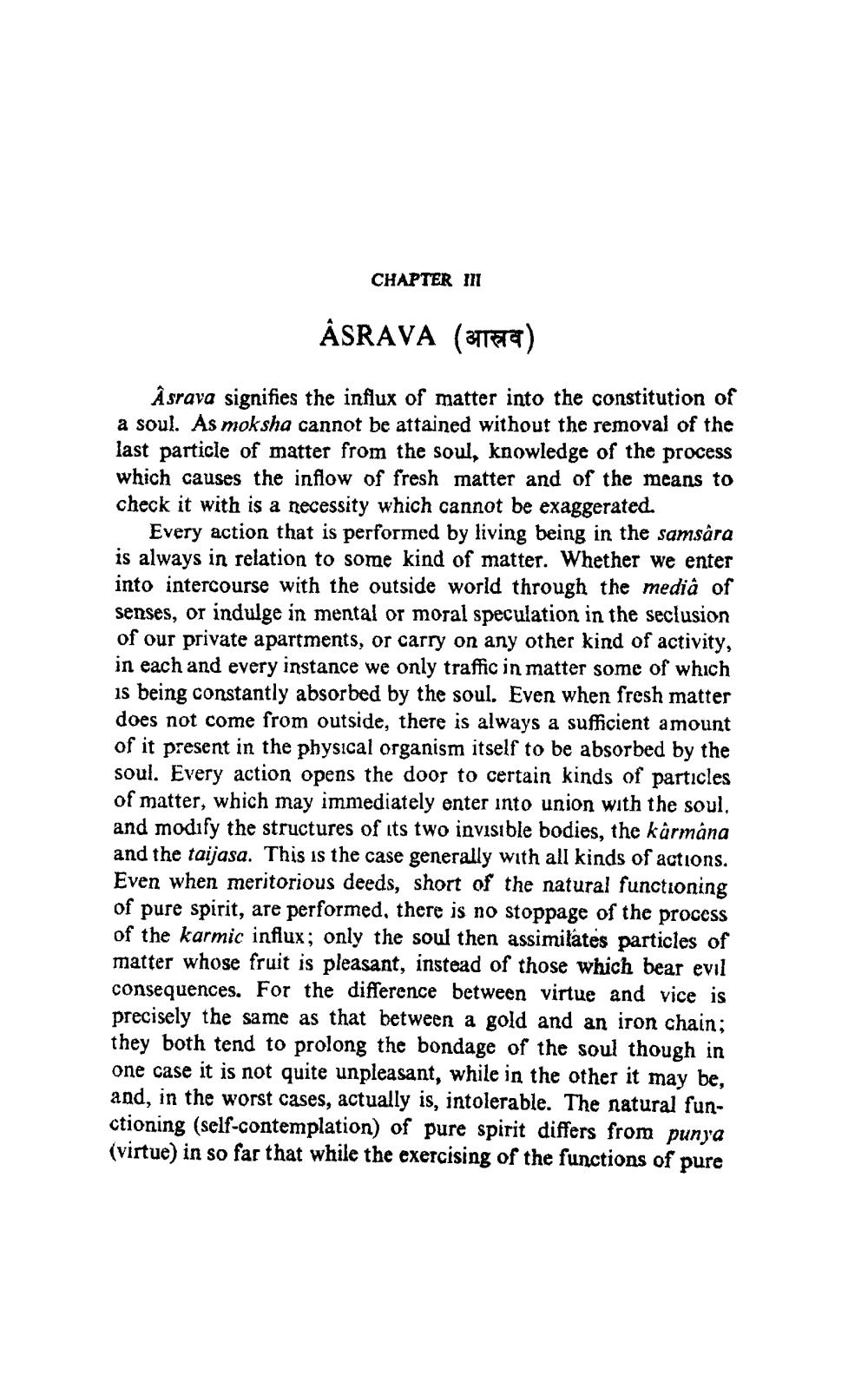________________
CHAPTER IN
ASRAVA (TEC)
 srava signifies the influx of matter into the constitution of a soul. As moksha cannot be attained without the removal of the last particle of matter from the soul, knowledge of the process which causes the inflow of fresh matter and of the means to check it with is a necessity which cannot be exaggerated.
Every action that is performed by living being in the samsára is always in relation to some kind of matter. Whether we enter into intercourse with the outside world through the media of senses, or indulge in mental or moral speculation in the seclusion of our private apartments, or carry on any other kind of activity, in each and every instance we only traffic in matter some of which is being constantly absorbed by the soul. Even when fresh matter does not come from outside, there is always a sufficient amount of it present in the physical organism itself to be absorbed by the soul. Every action opens the door to certain kinds of particles of matter, which may immediately enter into union with the soul, and modify the structures of its two invisible bodies, the kârmana and the taijasa. This is the case generally with all kinds of actions. Even when meritorious deeds, short of the natural functioning of pure spirit, are performed, there is no stoppage of the process of the karmic influx; only the soul then assimilates particles of matter whose fruit is pleasant, instead of those which bear evil consequences. For the difference between virtue and vice is precisely the same as that between a gold and an iron chain: they both tend to prolong the bondage of the soul though in one case it is not quite unpleasant, while in the other it may be, and, in the worst cases, actually is, intolerable. The natural functioning (self-contemplation) of pure spirit differs from punya (virtue) in so far that while the exercising of the functions of pure




